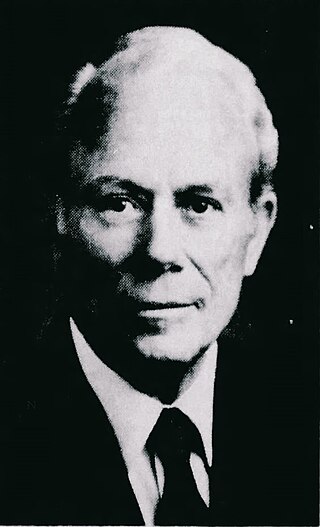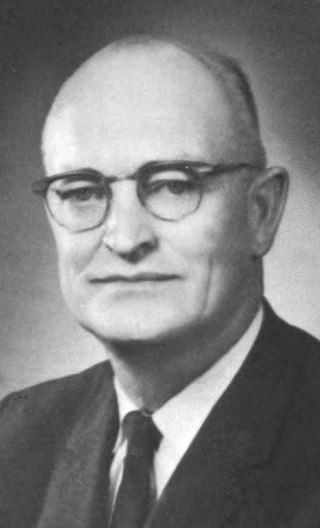Related Research Articles

David Ronald Musgrove is an American lawyer and politician who served as the 62nd governor of Mississippi from 2000 to 2004. A Democrat, he previously served as the 29th lieutenant governor of Mississippi from 1996 to 2000. He was the Democratic nominee in the 2008 special election for one of Mississippi's seats in the United States Senate, losing to incumbent Senator Roger Wicker. Musgrove is a principal at a public affairs consulting firm, Politics. In 2014, he became founding partner of a new law firm in Jackson, Mississippi, Musgrove/Smith Law. As of 2024, he is the most recent Democrat to hold the office of Governor of Mississippi.

Daniel Kirkwood "Kirk" Fordice Jr. was an American politician and businessman who served as the 61st governor of Mississippi from 1992 to 2000. He was the first Republican governor of the state since Reconstruction, and the state's first governor elected to two consecutive four-year terms.

Raymond Edwin Mabus Jr. is an American politician and lawyer. A member of the Democratic Party, he served as the 75th United States Secretary of the Navy from 2009 to 2017. Mabus previously served as the State auditor of Mississippi from 1984 to 1988, as the 60th governor of Mississippi from 1988 to 1992, and as the United States ambassador to Saudi Arabia from 1994 to 1996.

Richard Henderson Molpus Jr. is an American businessman and Democratic Party politician who served as Secretary of State of Mississippi from 1984 until 1996. He unsuccessfully ran for governor in 1995 against Republican incumbent Kirk Fordice. He later established a timberland management company. Throughout his public life he has pushed for reforms to support public education and promote racial reconciliation.

The Mississippi Republican Party is the Mississippi state affiliate of the United States Republican Party. The party chairman is Frank Bordeaux, and the party is based in Jackson, Mississippi. The original Republican Party of Mississippi was founded following the American Civil War, and the current incarnation of the Mississippi Republican Party was founded in 1956. The party would grow in popularity after the 1964 Civil Rights Act and is currently the dominant party in the state.

Michael Cameron Moore is an American attorney and politician. A member of the Democratic Party, he served as the Attorney General of Mississippi from 1988 to 2004.

The state auditor of Mississippi is an elected official in the executive branch of Mississippi's state government. The duty of the state auditor is to ensure accountability in the use of funds appropriated by the state legislature by inspecting and reporting on the expenditure of the public funds.

William Hampton King was an American auditor who served as State Auditor of Mississippi from 1964 to 1984.

Jack Raymond Reed Sr. was an American businessman and politician. Born in Tupelo, Mississippi, he served in the United States Army during World War II and earned degrees from Vanderbilt University and New York University before returning home to help run his family's retail business. He later assumed control over their department store after his father's death in 1956. Active in local civic affairs, he chaired the Mississippi Economic Council from 1963 to 1964 and became a vocal proponent for public education. Appointed to the Mississippi Board of Education in 1984, he chaired the body until he decided to run for the office of governor of Mississippi in 1987 as a moderate Republican. Reed lost the general election but performed better than any Republican gubernatorial candidate had in Mississippi in the 20th century to that point. In his later life he continued to advocate for public education. He died in 2016.

Dewey Phillip Bryant is an American politician who served as the 64th governor of Mississippi from 2012 to 2020. A member of the Republican Party, he was the 31st lieutenant governor of Mississippi from 2008 to 2012 and 40th state auditor of Mississippi from 1996 to 2008. Bryant was elected governor in 2011, defeating the Democratic nominee Mayor Johnny DuPree of Hattiesburg. He was re-elected in 2015, defeating Democratic nominee Robert Gray.

Robert Montgomery Dearing was an American politician, educator, and businessman who served in the Mississippi Senate as a member of the Democratic Party.

Eddie Jerome Briggs is an American politician and lawyer. After service in the Mississippi State Senate, Briggs was the 28th Lieutenant Governor of Mississippi, a position which he held from 1992 to 1996. He was the first Republican to have held the office of lieutenant governor of Mississippi since Reconstruction.

The Government of Mississippi is the government of the U.S. state of Mississippi. Power in Mississippi's government is distributed by the state's Constitution between the executive and legislative branches. The state's current governor is Tate Reeves. The Mississippi Legislature consists of the House of Representatives and Senate. Mississippi is one of only five states that elects its state officials in odd numbered years. Mississippi holds elections for these offices every four years in the years preceding Presidential election years.

A general election was held in the U.S. state of Mississippi on November 3, 2015. All of Mississippi's executive officers were up for election. Primary elections were held on August 4, 2015, with primary runoffs to be held on August 25, 2015 if no candidate received a majority in the primary. The filing deadline for primary ballot access was February 27.

The 2019 Mississippi gubernatorial election took place on November 5, 2019, to choose the next Governor of Mississippi. Incumbent Governor Phil Bryant was ineligible to run for a third term due to term limits. The Democratic Party nominated incumbent Attorney General Jim Hood, the only Democrat holding statewide office in Mississippi; the Republican Party nominated incumbent Lieutenant Governor Tate Reeves. In the general election, Reeves defeated Hood by a margin of 5.08%, with Reeves significantly underperforming Trump who won the state by 17 points, 3 years prior.

The 1995 Mississippi gubernatorial election took place on November 7, 1995 to elect the Governor of Mississippi. Incumbent Republican Kirk Fordice won reelection to a second term. This is the last time that a gubernatorial nominee and a lieutenant gubernatorial nominee of different political parties were elected governor and lieutenant governor in Mississippi.

The 1991 Mississippi gubernatorial election took place on November 5, 1991 to elect the Governor of Mississippi. Incumbent Democrat Ray Mabus unsuccessfully ran for reelection to a second term. This election marked the first time a Republican was elected Governor of Mississippi since Reconstruction, when Adelbert Ames won the office in 1873.
Steven A. Patterson is an American lawyer and politician who served as State Auditor of Mississippi from 1992 to 1996. A Democrat, he worked on several political campaigns in the 1970s and served as treasurer for Bill Allain's 1983 gubernatorial campaign. With Allain's backing, Patterson assumed the chairmanship of the Mississippi Democratic Party, which he held until 1987.
Operation Pretense was a sting operation conducted by the U.S. Federal Bureau of Investigation (FBI) in the mid-1980s that resulted in convictions against 71 people, including 55 county supervisors, on corruption-related charges such as bribery and extortion in the state of Mississippi. The investigation began in March 1984 and lasted until late 1987, with the first indictments being issued on February 13 of that year.
References
- ↑ Spear, Susie (September 16, 1991). "Political party split hasn't caused Johnson family feud". The Clarion-Ledger. p. 4B.
- ↑ Branson, Reed (September 16, 1991). "Three in GOP governor's race share views, not backgrounds". The Commercial Appeal. pp. A1, A4.
- 1 2 Crockett 2003, p. 95.
- 1 2 3 4 5 6 7 Criss, Jack (May 7, 2021). "Pete Johnson : A Life Of Service, Faith…And Quiet Resolve". Delta Business Journal. Retrieved June 16, 2022.
- 1 2 3 4 Stewart, Steve (July 30, 1999). "Remember Pete Johnson?". Enterprise-Journal. p. 2.
- 1 2 Nash & Taggart 2009, p. 226.
- 1 2 3 Canerdy, Beverly (November 4, 1987). "Johnson easily win auditor's post; pledges to fight 'hint of meritocracy'". The Clarion-Ledger. p. 4A.
- ↑ "Pete Johnson runs for State Auditor". The Columbian-Progress. May 28, 1987. p. 10A.
- ↑ Davis, Dan (August 27, 1987). "Officials: Vote for youth cites yen for change". The Clarion-Ledger. pp. 1A, 11A.
- ↑ Crockett 2003, pp. 90–92.
- 1 2 Crockett 2003, p. 111.
- ↑ McLaurin, Mac (July 10, 2017). "County Government". Mississippi Encyclopedia. Mississippi Humanities Council. Retrieved March 26, 2023.
- ↑ Crockett 2003, pp. 90, 95.
- ↑ Crockett 2003, pp. 96–97.
- ↑ Crockett 2003, pp. 97–98, 118–119.
- ↑ Krane & Shaffer 1992, p. 106.
- ↑ Banks, Michael (December 5, 2018). "Pete Johnson: President Bush Was the Reason I Turned Republican". The Clarksdale Press Register. Retrieved June 16, 2022.
- 1 2 3 Lamis 1999, p. 254.
- ↑ Lamis 1999, p. 257.
- ↑ Lamis 1999, pp. 253–254.
- ↑ Lamis 1999, p. 255.
- ↑ Gordon, Mac (July 3, 1992). "Ex-state auditor expected to be named director of FmHA". The Clarion-Ledger. p. 5B.
- ↑ "Pete Johnson named to head up state FmHA". The Clarksdale Press Register. Associated Press. July 16, 1992. p. 5.
- ↑ Gordon, Mac (February 10, 1993). "2 Republican USDA appointees out of work". The Clarion-Ledger. p. 5B.
- ↑ Gordon, Mac (May 6, 1996). "Ex-auditor rejects state offer for prison facility". The Clarion-Ledger. p. 2B.
- ↑ "Johnson recovers after undergoing liver transplant surgery". The Clarksdale Press Register. May 23, 1996. p. 1.
- ↑ "Mr. Pete Johnson, Federal Co-Chairman". Delta Regional Authority. Archived from the original on July 19, 2006. Retrieved August 30, 2022.